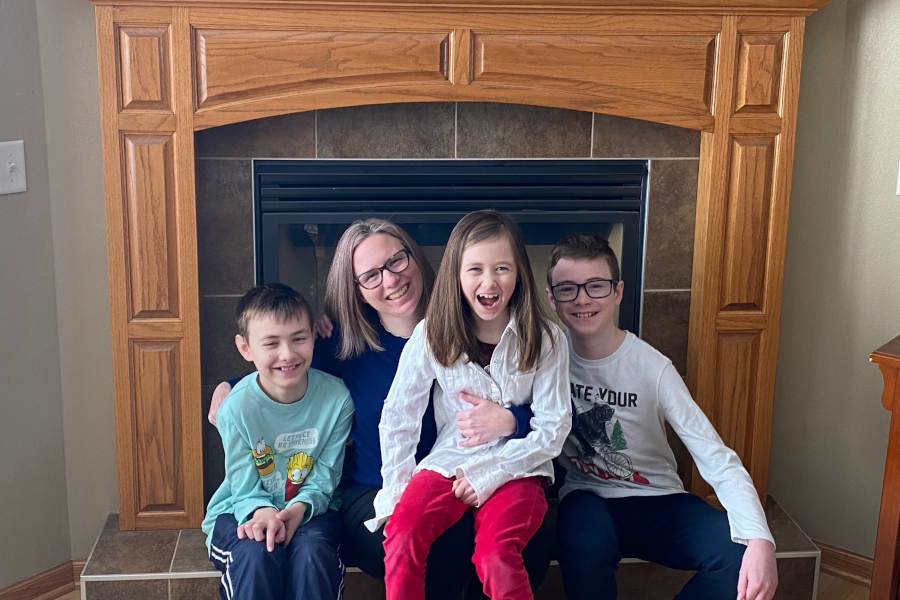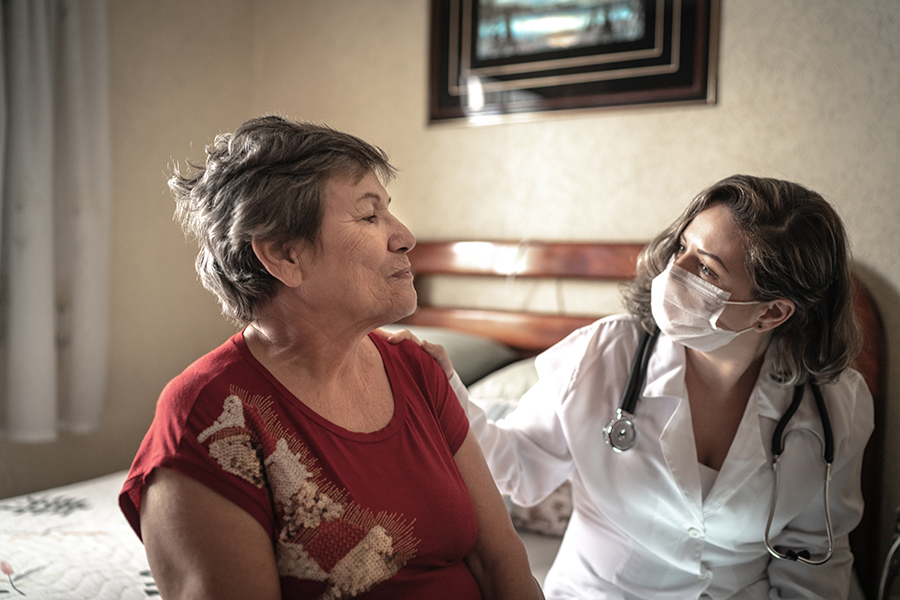Dementia is a broad term that describes a group of symptoms that affect many of the cognitive skills necessary for daily functioning, such as memory, attention, language, perception, judgment or reasoning. It isn’t a specific disease, and many causes of dementia symptoms exist. It has varying degrees of severity, and its causes are often categorized – or “typed” – by characteristics they share, such as what part of the brain is affected.
Types
Some forms of dementia are treatable, such as those caused by a reaction to medications or an infection, while other causes are of a more progressive nature and worsen over time. Alzheimer’s disease and Parkinson’s disease are good examples of progressive dementias. Professionals may further categorize dementia as:
- Alzheimer’s disease – the most common type of progressive dementia, accounting for 60-80% of cases
- Vascular dementia – brought on by strokes, tumors or head injuries
- Dementia with Lewy Bodies – caused by protein deposits (Lewy bodies) in brain cells
- Mixed dementia – characterized by a combination of dementias
- Parkinson’s disease – as PD progresses, progressive dementia often develops
- Frontotemporal dementia – caused by the degeneration of the frontal and temporal lobes
- Creutzfeldt-Jakob disease – brought on by a rare, aggressive brain disorder
- Normal pressure hydrocephalus – caused by the buildup of fluid in the brain
- Huntington’s Disease – a progressive brain disorder brought on by a defective gene
- Wernicke-Korsakoff Syndrome – brought on by severe vitamin B-1 deficiency, frequently associated with excessive alcohol consumption.
Signs and Symptoms
Memory loss, in combination with the interference of a second brain function (such as impaired judgment or language), is usually the first symptom of dementia. As dementia worsens, individuals may lose emotional and behavioral control, develop personality changes and develop a reduction or total loss of problem-solving abilities. In addition, they may experience many of the following symptoms:
- Trouble doing things that take planning, such as making lists and going shopping
- Trouble using or understanding words
- Getting lost in familiar places
- Difficulty communicating
- Inability to learn or remember new information
- Difficulty with planning and organizing
- Difficulty with coordination and motor functions
- Paranoia
- Agitation
- Hallucinations
- Changes in sleeping patterns
- Delirium
- Inadequate nutrition
- Incontinence
Risk Factors
The risk of dementia and many of the symptoms listed above increase with age, though it isn’t a normal part of aging. Genetics and family history may also act as risk factors, however studies have shown that some individuals with a family history may never develop it while others without a history do.
Other risk factors include alcohol use, atherosclerosis, high blood pressure, high cholesterol, late-life depression, diabetes, high estrogen levels, homocysteine blood levels and smoking. Treatment methods and advice on how to manage this ailment and its symptoms should be discussed with a medical professional.
For more information and caregiver support groups, visit the Alzheimer’s and Dementia Caregiver Center. The following reference sites were used for this article: WebMD.com, MayoClinic.com and the Alzheimer’s Association.
This article was written by a contributing author at Shield HealthCare.























